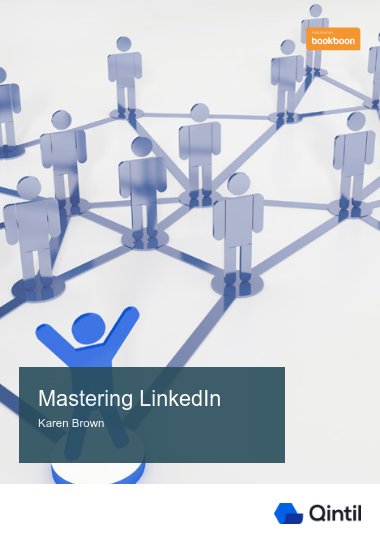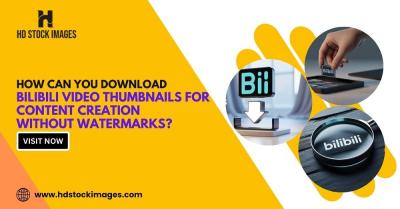Landing a job at LinkedIn can be a game changer in your tech career. But to get there, you need to ace the technical interview process. This isn’t just about coding skills; it’s about understanding LinkedIn's specific culture and expectations. In this post, we'll walk you through everything you need to know to master the
Understanding the LinkedIn Technical Interview Process
The technical interview process at LinkedIn is designed to evaluate not only your coding prowess but also your problem-solving skills and cultural fit within the company. Here's a breakdown of what to expect:
- Application Stage: Submit your resume and cover letter tailored to the role. Make sure to highlight relevant skills and experiences.
- Recruiter Screen: Typically lasting around 30 minutes, this is more of a conversation. Expect questions about your background, experiences, and motivations for joining LinkedIn.
- Technical Phone Screen: This is your chance to shine technically. You'll be asked to solve coding problems, often using platforms like CoderPad or similar tools. Make sure to practice common algorithms and data structures!
- On-site Interviews: This might be a combination of whiteboarding sessions, system design problems, and behavioral interviews. Expect to interact with team members and demonstrate both technical and soft skills.
Throughout this process, it’s vital to remember:
- Prepare for Collaboration: LinkedIn values teamwork, so be ready to explain your thought process clearly and engage with your interviewers.
- Cultural Fit Matters: Familiarize yourself with LinkedIn’s core values and understand how your experiences align with their mission.
Mastering each stage of this process increases your chances of landing an offer and setting yourself up for success at LinkedIn.
Key Technical Skills to Focus On
When preparing for a LinkedIn technical interview, it's crucial to identify and hone the key skills that are often scrutinized by hiring managers. These skills not only demonstrate your technical proficiency but also showcase your problem-solving abilities. Here are the key areas to focus on:
- Data Structures: Understanding various data structures like arrays, linked lists, stacks, queues, trees, and graphs is vital. Know their complexities and when to apply them.
- Algorithms: Familiarize yourself with sorting algorithms (like quicksort and mergesort), searching algorithms (binary search), and graph algorithms (DFS, BFS). The ability to analyze algorithmic efficiency is crucial.
- System Design: For higher-level positions, grasping system design principles is essential. Learn how to design scalable systems and understand concepts like load balancing, caching, and database sharding.
- Databases: Proficiency in SQL and understanding of NoSQL databases will set you apart. Be ready to solve queries efficiently and discuss normalization and indexing.
- Languages and Frameworks: Brush up on the programming languages you’ll use in the role. Whether it’s Python, Java, or JavaScript, be prepared to write clean, maintainable code and know the frameworks commonly used in the industry.
Mastering these skills will not only help you ace the technical interview but also prepare you for real-world challenges in your potential role at LinkedIn.
Preparation Strategies for Technical Interviews
Preparing for a technical interview can feel daunting, but with a strategic approach, you can boost your confidence and performance. Here are some tried-and-true strategies to help you prepare effectively:
- Practice Coding Problems: Use platforms like LeetCode, HackerRank, or CodeSignal to tackle coding questions regularly. Aim to solve problems of varying difficulty to broaden your skills.
- Mock Interviews: Conduct mock interviews with friends or mentors. This practice will mimic the interview atmosphere and help you articulate your thought process out loud.
- Study Behavioral Questions: Technical interviews often include behavioral components. Prepare for questions about teamwork, challenges faced, and conflict resolution. The STAR (Situation, Task, Action, Result) method can help frame your responses.
- Review Fundamentals: Revisit computer science fundamentals and revisit challenging concepts that may have slipped your mind. Make use of textbooks or online courses if necessary.
- Create a Study Schedule: Break down your preparation into manageable chunks. Create a timeline that prioritizes areas needing the most attention, ensuring you're covering all necessary topics systematically.
Remember, consistency is key. By following these strategies, you'll be better equipped to tackle the technical interview with confidence and proficiency.
Practicing with Mock Interviews
One of the best ways to prepare for technical interviews on LinkedIn is through mock interviews. These practice sessions not only help you get acquainted with the interview format but also boost your confidence. Let’s dive into how to effectively utilize mock interviews to ensure you put your best foot forward.
First up, find a partner or use online platforms dedicated to mock interviews. Here are a few options:
- Peer Practice: Find a friend or colleague who is also preparing for interviews. You can take turns asking each other technical questions.
- Online Platforms: Websites like Pramp or Interviewing.io offer free mock interviews with peers or experienced interviewers.
- Professional Coaches: Consider hiring a career coach who specializes in tech interviews. They can provide tailored feedback and insights.
When you’re in a mock interview, make sure to treat it like the real deal. This means dressing the part, maintaining good posture, and striving to think out loud as you problem-solve. Here are some tips to make your mock interviews most effective:
- Record Yourself: If possible, record your sessions. Watching yourself can help identify areas for improvement.
- Feedback is Key: After each session, gather constructive feedback. Be open to suggestions and make notes on what to work on.
- Simulate Real Pressure: Try to recreate the stress and time constraints of an actual interview. Set timers for coding challenges.
Mock interviews are invaluable for familiarizing yourself with interview scenarios, building skills, and increasing your confidence. So, don’t skip this crucial step!
Important Tips for the Day of the Interview
When the big day arrives, it’s easy to feel a mix of excitement and anxiety. But worry not! With the right preparation, you can handle the day like a pro. Here are some essential tips to keep in mind.
First and foremost, start your day off right. Here’s a checklist you might find helpful:
- Get Adequate Sleep: A good night's sleep is vital. Aim for 7-8 hours to ensure you’re well-rested.
- Breakfast Boost: Have a healthy breakfast. Foods rich in protein and complex carbohydrates will fuel your brain.
- Dress Professionally: Wearing professional attire can enhance your confidence. Choose something comfortable that reflects your professionalism.
Now, let’s talk about mindset. Staying calm and focused is crucial to performing well during the interview. Here’s how to maintain a positive vibe:
- Mindful Breathing: Before your interview starts, take a few deep breaths. This can help slow your heart rate and clear your mind.
- Visualize Success: Picture your dream interview going perfectly. Visualization can create a positive mindset.
- Plan to Arrive Early: Being on time is essential. Aim to log in or arrive at the venue 10-15 minutes early to settle in.
Finally, during the interview, remember: it’s just a conversation. Engage with your interviewer, ask questions, and don’t hesitate to clarify any doubts. Arm yourself with these tips, and you’ll navigate your LinkedIn technical interview with ease and confidence!
7. Common Technical Interview Questions
When you're gearing up for a technical interview on LinkedIn or anywhere else, it's crucial to be prepared for the types of questions you might face. Here’s a rundown of some common technical interview questions that can help you showcase your skills effectively:
- Algorithm and Data Structure Questions: Expect questions that ask you to explain or write algorithms. You might encounter problems such as:
- Sorting algorithms (e.g., Quick Sort, Merge Sort)
- Data structure usage (e.g., Linked Lists, Trees, Hash Tables)
- System Design Questions: Be prepared to discuss the architecture of a system. You might be asked to design:
- A URL shortening service like Bitly
- A chat application
- Behavioral Technical Questions: These questions help interviewers understand how you approach problems. Some examples include:
- How do you handle tight deadlines?
- Describe a challenging technical problem you faced and how you resolved it.
Remember, the key to answering these questions is not just about getting the right answer but also about demonstrating your thought process. Practice coding on platforms like LeetCode or HackerRank, and engage in mock interviews with peers or mentors to build confidence. The more you practice, the more natural these responses will become!
8. Post-Interview Follow-up
Once the technical interview is over, you might think it's time to kick back and relax, but this is actually a pivotal moment where you can make a lasting impression! A thoughtful post-interview follow-up can set you apart from other candidates. Here are some important steps to consider:
- Send a Thank-You Email: Reach out within 24 hours and thank the interviewer for their time. Make it personal! Mention specific topics discussed during the interview or something you found particularly interesting.
- Express Your Enthusiasm: Reiterate your interest in the position and the company. Let them know why you’re excited about the opportunity to work with them.
- Clarify Any Questions: If there were any questions you felt you didn’t answer as well as you’d like, you can briefly address those in your follow-up email.
Here’s a simple structure you could use for your email:
| Element | Description |
|---|---|
| Subject Line | A simple “Thank you for the interview!” |
| Greeting | Address the interviewer by name. |
| Body | Express gratitude, mention specifics from the conversation, and restate your interest. |
| Closing | Thank them again and sign off with your name. |
Following up shows professionalism and enthusiasm. It keeps the lines of communication open and reminds the interviewers of your candidacy. So, don’t underestimate the power of a good follow-up!
Mastering LinkedIn Technical Interviews for Success
LinkedIn's technical interviews are distinct in their approach, emphasizing both technical skills and cultural fit. As you prepare for these interviews, it's essential to understand the structure, types of questions asked, and the best practices to excel.
Here are key components to focus on:
- Understand the Interview Process: LinkedIn typically follows a multi-stage interview process including phone screenings, technical assessments, and final interviews. Be prepared for each stage.
- Technical Assessment: This often involves coding challenges, system design questions, and algorithmic problems. Brush up on data structures, common algorithms, and system architecture principles.
During the interview, candidates can expect a balance of the following:
| Question Type | Description |
|---|---|
| Coding Questions | Solving real-time coding problems, often in a collaborative environment using platforms like LeetCode or HackerRank. |
| System Design | Designing scalable systems, focusing on how to handle user requests, database management, and more. |
| Behavioral Questions | Exploring your past experiences, challenges faced, and lessons learned to assess cultural fit. |
To excel in your LinkedIn technical interviews, practice coding regularly, participate in mock interviews, and gather insights from professionals in the industry. Do not overlook the importance of soft skills, as they are just as vital in showcasing your compatibility with LinkedIn’s core values and team dynamics.
In conclusion, mastering LinkedIn technical interviews requires preparation, practice, and a balance of technical and interpersonal skills to ensure you stand out as a desirable candidate.

 admin
admin








